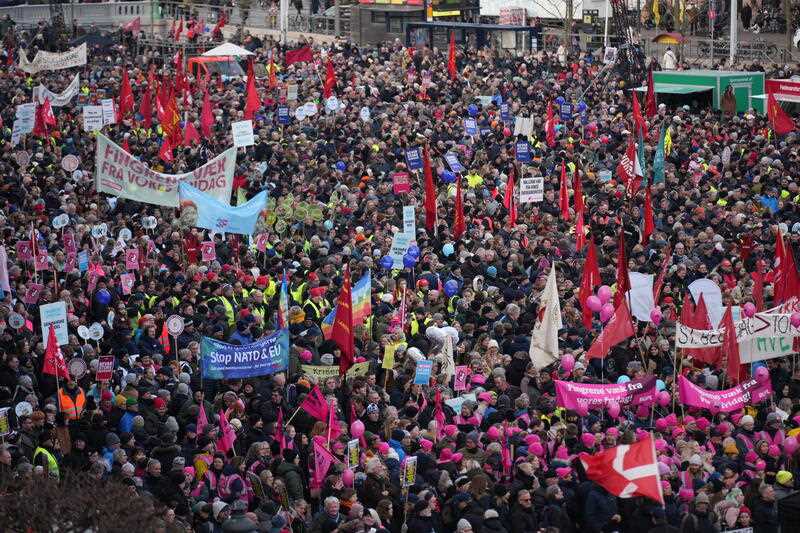Denmark’s parliament has passed a much-debated bill put forward by the new government to scrap a public holiday to help finance increased defence spending.
The newly formed centrist government, which has proposed sweeping reforms aimed at overcoming challenges to the country’s welfare model, says the move will help raise tax revenues for higher defence spending amid the Ukraine war.
Labour unions have protested a plan to abolish the Great Prayer Day, a Christian holiday that falls on the fourth Friday after Easter and dates back to 1686, since it was put forward in December.
Harsh criticism also came from the opposition and the country’s bishops.
Opposition MPs called the bill “foolish,” “crazy” and “totally wrong” but failed to agree on calling a referendum on the issue.
In Denmark, 60 MPs can demand a plebiscite.
The loss of the holiday – created more than 300 years ago when a Danish bishop merged several minor holidays – has triggered a backlash throughout the country of nearly six million where more than 73 per cent of the population belong to the State Lutheran Church, although fewer than 3 per cent of people are regular churchgoers.
The government also agreed to accelerate defence spending following increased geopolitical uncertainty after the sabotage of two pipelines carrying gas from Russia to Germany through Danish waters.
Denmark will aim to meet a NATO defence spending target of 2 per cent of GDP by 2030, three years earlier than planned.
The government says most of the extra 4.5 billion Danish crowns ($A948 million) needed to meet the target will be covered by the higher tax revenues anticipated from abolishing the holiday.
Unions, opposition lawmakers and economists have questioned the effect of the proposal but the majority-government passed the bill with 95 votes to 68 votes in the 179-seat parliament as 16 MPs were absent.
with AP



